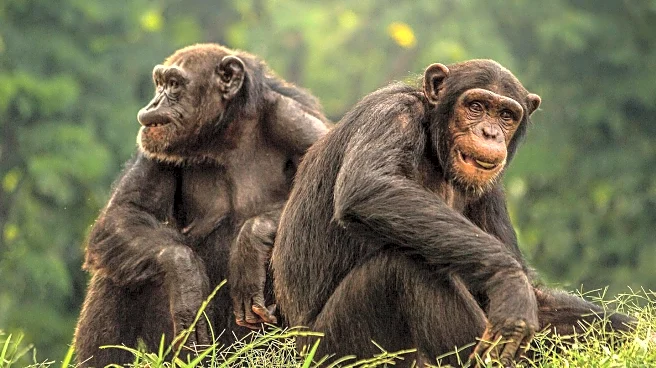What's Happening?
Renowned primatologist Jane Goodall, celebrated for her groundbreaking research on chimpanzees and her conservation efforts, passed away last week at the age of 91. Goodall's work significantly challenged the belief in human uniqueness by demonstrating complex behaviors in chimpanzees, which she discussed in a 1999 interview with Terry Gross. Her research has been pivotal in understanding primate behavior and has sparked scientific discussions about the similarities between humans and animals.
Why It's Important?
Jane Goodall's contributions to primatology and conservation have had a profound impact on scientific understanding and environmental policy. Her work has influenced the way humans perceive their relationship with other species, promoting conservation efforts and ethical considerations in wildlife research. Goodall's legacy continues to inspire new generations of scientists and conservationists, emphasizing the importance of protecting natural habitats and understanding animal behavior.
What's Next?
The scientific community and conservation organizations are likely to continue building on Goodall's work, advancing research in primate behavior and habitat preservation. Tributes and memorials may be organized to honor her contributions, and her passing could lead to renewed interest in conservation initiatives and funding for wildlife research.
Beyond the Headlines
Goodall's work has not only advanced scientific knowledge but also raised ethical questions about human interaction with wildlife. Her research has encouraged a shift towards more humane and respectful treatment of animals, influencing cultural attitudes and legal frameworks regarding animal rights and conservation.











